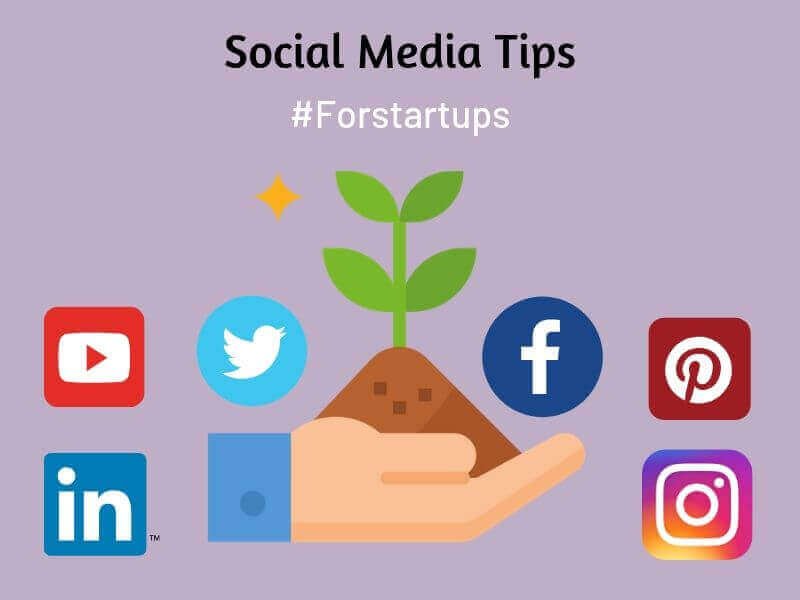15 Social Media Tips to Elevate Your Marketing Strategy

Social media marketing is the new norm with more than 4 billion users. Businesses irrespective of the niche are using social media for quality traffic, rigorous customer engagement, and driving sales.
But is being on social media enough? Of course not!
It is a worrisome concern for marketers to scale rapidly and gain mass visibility when the competition is this stiff.
Despite this, you can be a sensational hit on social media. It has a global penetration rate of 57%.
This means that more than half the world’s population is active on social media! The only catch is you have to leverage these social media platforms to the maximum.
So here we are to help you explore the best social media marketing tips for businesses to bridge the gap and mend the loopholes.
Let’s go!
Social Media Marketing Tips to Skyrocket your Traffic
Too much to digest? Stay tuned with us as we break down each of these social media tips for you!
If you already think if it’s even worth the hassle, then have a look at these social media statistics.
Did you know that social media is the number one daily activity among Americans? A US user spends 38 minutes or more on Facebook daily.
No wonder 92% of marketers consider it significant to use social media platforms for their businesses.
Social media networks keep growing year after year. So, developing an effective social media strategy is vital. Otherwise, you will lose out on valuable customers and rewarding outcomes.
Let’s begin with the ultimate 15 social media tips to boost your branding and make your life easier.
1. Define your goals
Well, what will you aim at if you have no target? You need to know the 5 Whys behind your actions. Your goal will be the driving force of your social media marketing strategy.
So don’t delay anymore. Grab a paper, and pen down your goals!
But before we jump ahead, here are a few things you must keep in mind while goal setting:
- Be specific
- Set attainable goals
- Make sure that your goals are measurable
2. Learn about your target audience
Now that you have your goal in mind, let’s take a look at the audience. Without the support of your audience, your strategy will be in vain.
Drawing your social media strategy around your audience is a must. Your target audience will help you figure out everything, right from the social media platforms you need to be on to every ounce of content you’ll ever create.
Still wondering why your audience should have all the spotlight?
Here’s the reason.
If you want to create messages that resonate with your audience, you need to know what they care about the most.
t is essential to define their questions, their concerns, and their problems. For most businesses, one of the biggest challenges is to connect with the right audience. To find your ideal audience, you need to figure out who your target demographic is and what social networks they use.
3. Select your social media platforms wisely
It is not necessary to be available on all social media platforms, but what matters is to create an impact on a few that you are present on. It is probably one of the best tips for social media marketing.
It is not the quantity that matters, it’s the quality that counts! Putting out substandard content will only make things worse for you.
Instead, research and plan your social media presence that aligns with your goals and appeals to your target audience. Focus on the platforms that are preferred by your targeted demographic.
4. Build a winning game plan for social media marketing
Several research reports suggest that marketers who document their strategy are 538% more likely to achieve success.
This indeed calls for some real-time action!
After all, penning down a social media marketing strategy is the key to turning your vision into reality.
While you prepare your strategy, consider relevant social media platforms you’ll be posting on. Make sure your posts appeal to your target audience and align with your goals.
- Here are a few things to help you out with your social media strategy:
- Make a list of upcoming festivals and special days
- Create a content theme to provide your audience with a unified experience
- Prepare a list of hashtags for different platforms
- Make sure it covers your primary events, features, and campaigns
5. Set up a social media content calendar
There is a saying – failing to plan is planning to fail.
No matter what you do, without planning, you are going to fail in social media marketing! So, use social media content calendars tools to organize and publish all your content timely and efficiently.
Content calendars also help to distribute resources effectively, improve team collaboration and give a more in-depth understanding of what works and what doesn’t.
You’ll find ample templates online to pen down your calendar. You can use SocialPilot’s calendar or any other social media scheduling tools to plan your content calendar.
The best thing about these tools is that it enables you to put up images, set timings for your posts for multiple social media, and much more from a single dashboard.
Just create and update the publishing calendar once a week, build team sections, and distribute the file to co-workers to get their comments before posting.
6. Let the tools empower your strategy
Social media tools are going to be your savior. Imagine being on 8 different platforms and posting manually on each of them 3 times a day.
Damn, what a nightmare! All you’ll possibly do is publish hastily without any real productivity.
So, let’s leave the monotonous work for the tools, shall we?
Yup, that is possible! Try to automate as much of the activity as possible. For example, schedule your social media updates ahead of time.
Use social media scheduling tools like SocialPilot to auto-post your updates to all your social accounts, then evaluate the results with the analytics they provide.
SocialPilot-Social-Media-Scheduling-Create-Post
So, the whole point of using tools is to plan ahead of time. Plan, create, and schedule posts on your content calendar. Scheduling tools have an inbuilt content calendar that makes it easier to keep an eye on your posts.
Schedule your pins, tweets, posts along with hashtags and social media mentions all in one go for the month. Such an approach will save you time, helping you be more productive and focused on the overall strategy.
Pro Tip: Do you want to be pulled ahead of your competition? Always know what they are doing by using a competitor research tool like SE Ranking SEO Software to see how their ads look like and perform, what keywords they are using, and so forth.
7. Use the art of storytelling
It’s the stories that sell, not the product! We, humans, connect to stories. It is the emotional attachment that a brand builds with its audience. Stories inspire ideas and encourage interaction.
Here’s a perfect example of Airbnb, that will make you go all emotional. A super cool animation that is executed perfectly. Check out how they convey their message to belong anywhere here.
But this is not the only way to tell a story. There are simpler ways too to move your audience. Share successive posts to relate the whole story from the beginning to the end. The blow-by-blow arouses excitement that is great to make your story compelling.
Here’s an example of a Nike tweet thread to hook their audience right.
8. Humanize your brand
As much as all the digital innovations have made it easier to communicate, it is the emotion that we miss out on.
By the term ‘humanize your brand’ we mean, go beyond the glass tops of these digital screens. Show your audience what goes in your office, introduce them to your employees, show the humans behind your brand.
Remember that brand stories are not ads or sales pitches. They help the audience connect to your brand. Your stories tell them what you stand for, and they display your culture as well as your values.
For instance, share your plans for Friday, share the fun team-building activities you have. Let employees take over your social media for once and connect with the audience.
Take a look at the way SE Ranking does it on their Facebook page.
Use emoticons
Well, there is a reason there are emoticons. Emojis serve the purpose of conveying emotion by depicting facial expressions.
Apt use of emotions is extremely important to convey the desired tone and emotion behind the message. The glitch with written texts is that, if not formatted correctly, they can be easily misinterpreted. Here’s a small example.
You are an idiot! 😆
You are an idiot! 😡
The above phrases consist of the same words but with different emojis and convey a separate message.
It is as simple as adding a 😃. It is the emoticons that get the readers more excited about your content. So, next time you write, feel free to go overboard and include these.
10. Embrace your mistakes
We are all humans, and we make mistakes. This is especially essential to accept in the fast-growing world of social media. Instead of being ignorant of your mistakes, accept and apologize for the same. Work on them and tell your customers about them. They’ll love to hear that you worked on your mistakes to provide them with better services.
If you’ve made a grammar mistake or missed a comma, don’t delete the post. Probably, people liked your post, and they will notice your continuous re-posting.
Concerned about bigger mistakes?
For example, a product error or accidentally charging a customer’s credit card twice. Immediately respond in such scenarios. Publish a post from your social media accounts telling how you handled the error.
For instance, Pamela Vaughan from HubSpot regulated her baby bump error. Instead of her personal Twitter account, she accidentally published a picture of her growing pregnant belly on HubSpot’s Twitter account that had over 340,000 followers.
She wasn’t lost and knew the way to jump. She created an excellent blog post about her 15 minutes of shame on Twitter that got a lot of shares and comments.
11. Optimize your post frequency
Every audience uses various social networks at different times of the day. To connect with them, you need to know what type of content interests them, who is the potential purchaser of your services or products, and what age group is more accessible to sell.
But this is followed by another questionnaire round.
- How often should you post per day?
- What type of content should you post?
- What is the ideal number of posts per day?
These are some of the most common questions that any social media marketer is expected to answer.
To tell the truth, there is no ideal answer. Your answers come along with your analysis, experience, and tests of what works for you and what doesn’t work.
Start with finding out the right time to post. It is a pretty essential factor for your social media marketing strategy to work in your favor. It is important to publish high-quality content and find the ideal posting frequency for integrating a successful marketing strategy.
I found many studies, and each one showed a different social media timing with the recommended number of posts for each network. Here’s the average timing and frequency.
12. Cut back on the number of hashtags
Hashtags are great if you want to organize your social media posts. You can click on a specific hashtag, and all the content for a certain topic becomes visible. Hashtags are identifiers of your brand that help you initiate conversations and engage with your followers.
But you know what?
The more hashtags you use, the less engagement you get. The following chart from LINCHPINSEO gathers up the acquired data.
Too many hashtags can annoy people and can scale back your engagement rate. To avoid that, use 2 or 3 targeted hashtags per post on your social media channels and make sure to use only relevant, high-volume hashtags you can find using hashtag generator tools.
13. Treat each social channel uniquely
Many people believe that social media is a useful distribution tool and use the same message on each channel.
But it is not right. If you want to succeed in social media, you should treat each social media platform uniquely and consider its functionalities as well as features. There are multiple social media tools for agencies that not only help you by scheduling your posts but also let you customize your post for the individual platform.
Gary Vaynerchuk gives single-eyed explanations for his most used social channel differently. Facebook is a great communication tool for his entire community to promote books, web shows, and ask a lot of questions. Twitter is perfect for real-time news and offers one-on-one interactions. YouTube embraces his latest videos.
If you follow his Instagram account, you will see a bunch of real and impressive images about his travels and daily life. This platform is a great place to share high-quality visuals.
When it comes to LinkedIn, it includes a more business-oriented audience that is searching for insightful and informative content.
If you want to grow a loyal fanbase, use a creative strategy for each social channel. Take into consideration your follower demographics and share content that appeals most to them.
14. Share quality visual content
Do you leverage visual content when sharing blog posts on your social media platforms? I guess, yes. Visual content is a must to boost your social media engagement.
The Wyzowl study showed that we remember only 20% of what we read and 80% of what we see. The research from Software Advice and Adobe revealed that photos and images are the most powerful social media strategy.
People are more likely to share visual content on social networks. They find visuals attractive as they offer more value and assist in generating more traffic, increasing sales and taking you to the top. Using visuals should be the main ingredient for your social media marketing strategy.
15. Dive deep into social media analytics
Analytics help you understand your audience and learn what generates more traffic. Without these, you can’t make accurate sales forecasts and perfect your products. You can effectively use social media data to drive performance.
Reviewing analytics emphasizes on stats like follower growth, page views, number of posts, likes, shares, impressions, clicks, etc.
Social media analytics and reporting by SocialPilot help you keep track of your social media analytics. Use your results and organize monthly meetings with your marketing team to discuss the analytics, reevaluate your strategy, if needed, and make plans for the future.
Bottom Line
An effective social media marketing strategy is an essential part of your overall marketing plan. Using unconventional ways to interact with your audience will allow you to improve your outreach.
Measure the impact of your social media marketing efforts by using social media analytics tools and uncover audience details and how they interact with your business.
Let us know what social media hacks you use the most. Share the ones you are excited to use. Stay tuned to learn more of such social media marketing tips to get your brand wheel spinning.
Frequently Asked Questions
🌟 What’s a social media strategy?+
Social media strategy is detailed planning of all social media activities to increase the follower and lead count. These activities include content curation, visuals, scheduling, gauging analytics, running ad campaigns, engaging with audience and followers, tagging, replying, and more.
🌟 Why a social media strategy is important?+
🌟 How important is social media?+
🌟 What are the best social media apps for businesses?+
🌟 Who is the target audience of social media?+
🌟 What is the benefit of social media marketing?






